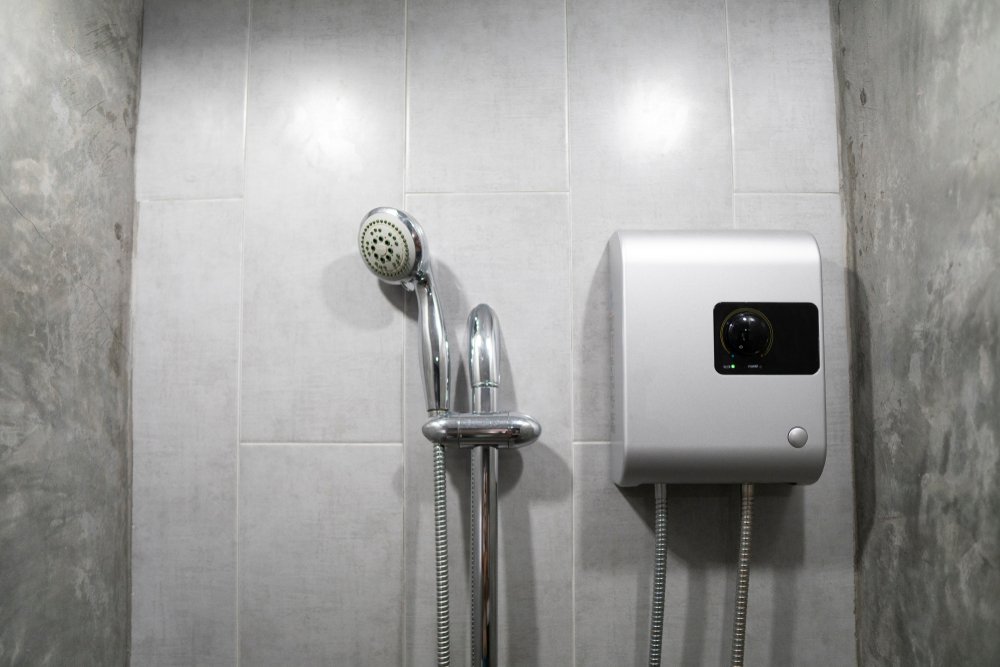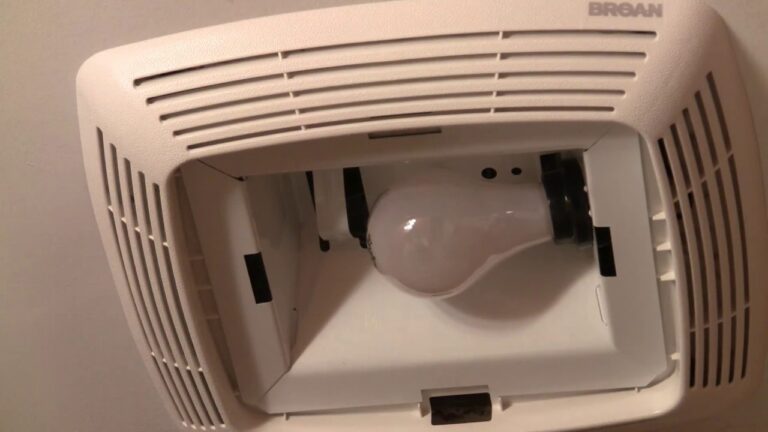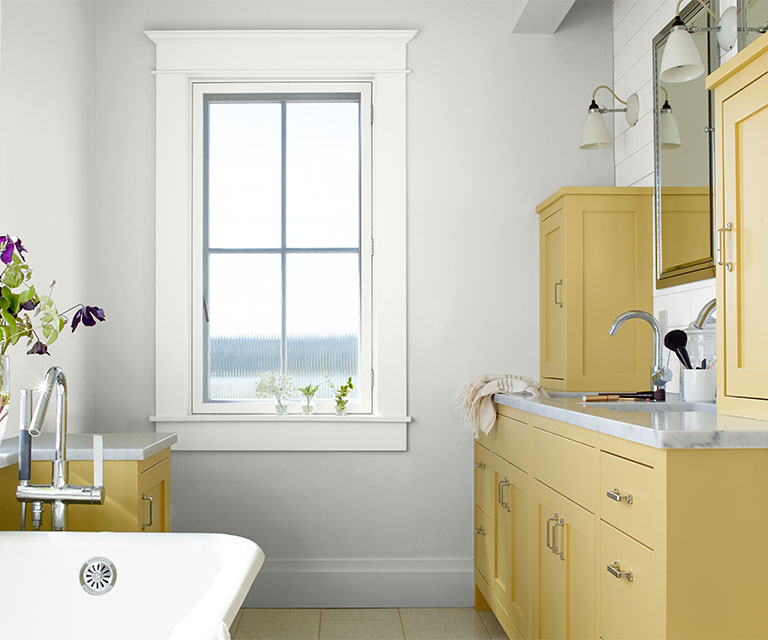Can a Point of Use Water Heater Be Used for a Shower? Discover Now
Imagine stepping into your shower and being greeted by perfectly warm water, instantly. You might wonder if a point of use water heater can make this dream come true.
With the convenience of on-demand hot water, these compact devices promise energy efficiency and rapid heating, but are they truly up to the task for your shower needs? As you consider the possibilities, you may find yourself questioning whether this small yet powerful solution can seamlessly fit into your daily routine.
This article will unravel the mysteries surrounding point of use water heaters, exploring their capabilities and limitations when it comes to shower use. Dive in to discover whether this modern marvel can transform your shower experience and become the ultimate upgrade for your home.
What Is A Point Of Use Water Heater?
Understanding the basics of a point of use water heater can be beneficial. These compact units provide hot water right where it’s needed. They are often installed near sinks, showers, or appliances. This direct supply is both efficient and convenient.
A point of use water heater is small and localized. It heats water for a specific area. Unlike central water heaters, it serves one outlet. This design helps reduce heat loss during distribution. These heaters can be electric or gas-powered.
They are perfect for small spaces. Installation is simple and quick. This makes them ideal for homes with limited room. Their compact size allows for flexibility. You can place them almost anywhere.
How Does A Point Of Use Water Heater Work?
The heater heats water directly at the point of use. Cold water enters the unit. It heats up immediately and is ready to use. This instant heating is energy-efficient. It avoids the need for large storage tanks. The process ensures hot water is available quickly.
Benefits Of Point Of Use Water Heaters
These heaters save space. They fit easily in small areas. Energy efficiency is another advantage. They heat only the water needed. This reduces overall energy consumption. Installation costs are low. Maintenance is straightforward and minimal.
Point of use heaters provide consistent hot water. They are reliable for everyday use. Their design is user-friendly. They offer convenience without hassle. Households can enjoy hot water on demand.
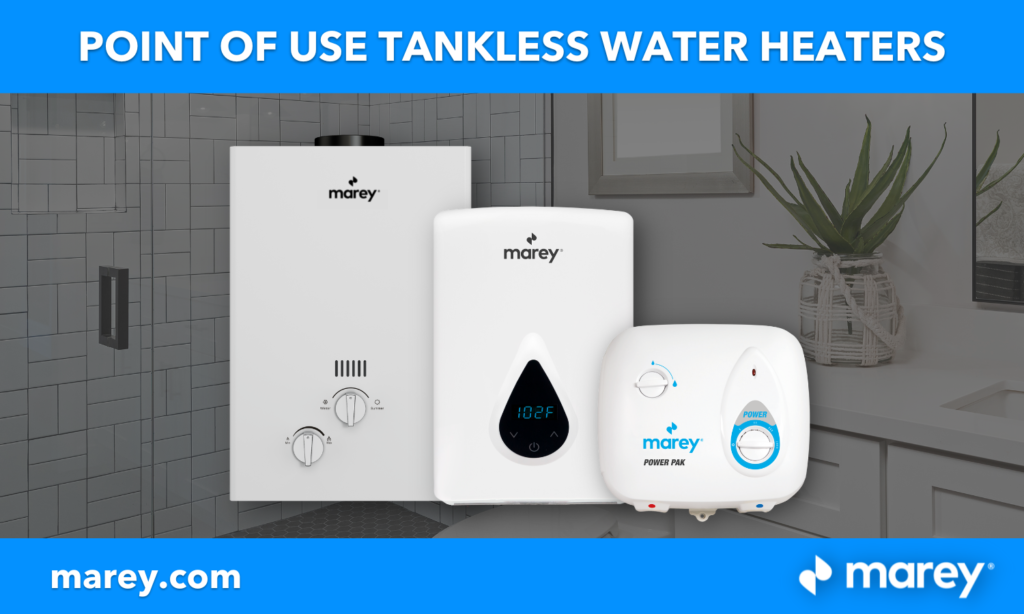
Credit: marey.com
Advantages Of Point Of Use Water Heaters
Point of use water heaters offer several advantages for shower use. They can be a practical choice for homes with limited space or specific hot water needs. Understanding these benefits can help decide if this water heater type fits your situation.
Space Saving Benefits
Point of use water heaters are compact. They fit in small spaces like under sinks or closets. This makes them ideal for apartments or small homes. Their size means they won’t clutter your living area. This frees up space for other essential items.
Energy Efficiency
These heaters heat water only when needed. This reduces energy waste and saves on electricity bills. They don’t keep a large tank of water hot all the time. This targeted heating can lower energy usage significantly.
Quick Access To Hot Water
Point of use heaters provide hot water almost instantly. You don’t have to wait long for water to heat up. This is convenient for busy mornings or when guests visit. Quick hot water means less time waiting and more time enjoying your shower.
Types Of Point Of Use Water Heaters
Point of use water heaters are compact and efficient. They provide hot water directly where it’s needed. This makes them ideal for showers and sinks. There are two main types of point of use water heaters: tankless models and mini-tank models. Each type has unique features and benefits.
Tankless Models
Tankless models heat water on demand. They don’t store hot water like traditional tanks. Instead, they heat water as it passes through the unit. This provides a continuous supply of hot water. Tankless models are energy-efficient. They save space because they are small and mounted on walls. Ideal for small bathrooms or limited space.
Mini-tank Models
Mini-tank models store a small amount of heated water. They are like mini versions of traditional water heaters. These units are perfect for quick hot water needs. They are installed under sinks or near showers. Mini-tank models are easy to install. They offer a faster hot water supply for short showers.
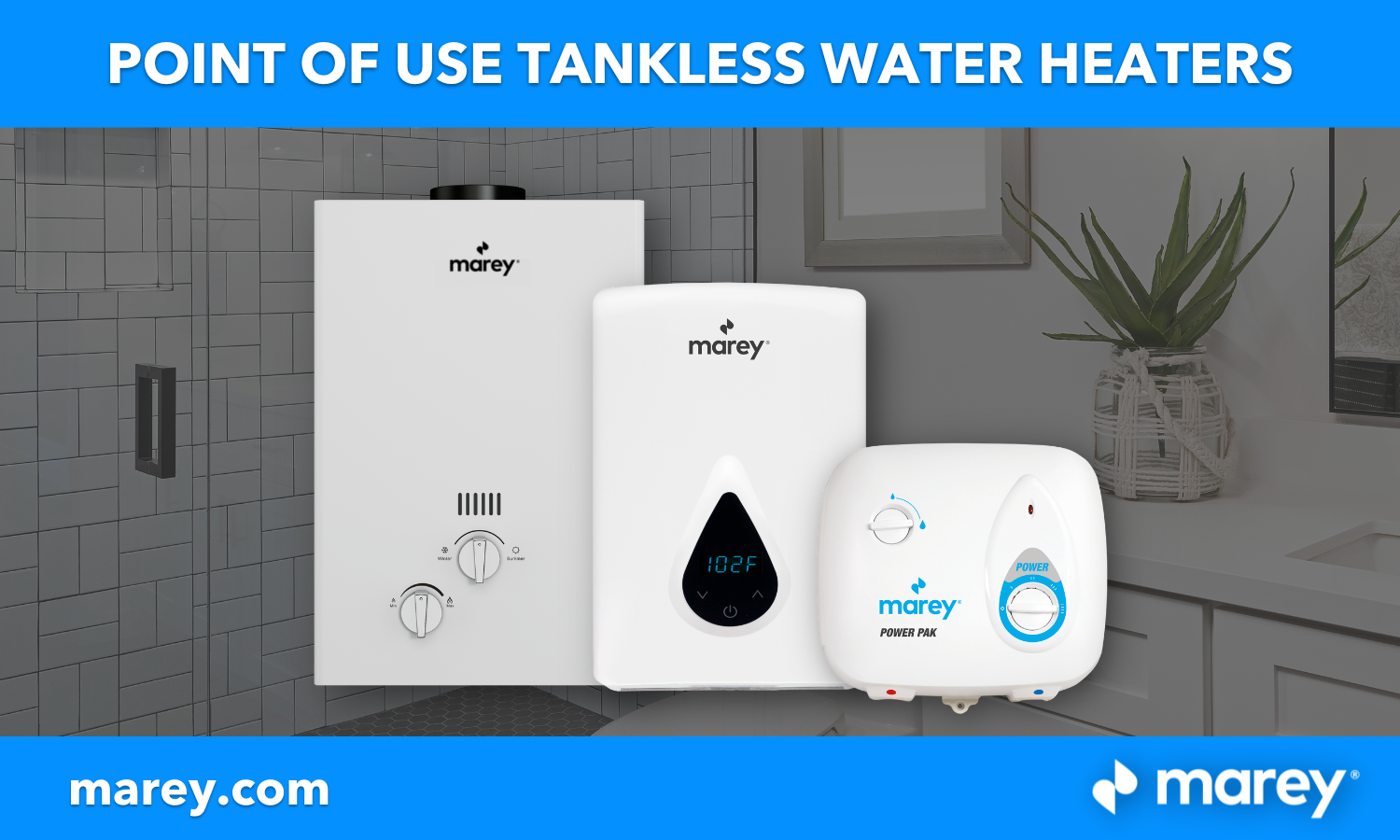
Credit: marey.com
Factors To Consider For Shower Use
Considering a point of use water heater for your shower can be an intriguing idea, especially if you’re looking to save on energy bills or space. However, before you make the leap, it’s crucial to understand the different factors that could affect its performance and suitability for shower use. Let’s dive into the key aspects you should evaluate.
Flow Rate And Capacity
Imagine stepping into the shower only to be met with a trickle of water. That’s a nightmare scenario, right? The flow rate and capacity of the water heater determine how much hot water you can enjoy during your shower. You’ll want a unit that can deliver a steady flow to meet your shower needs. Think about your shower habits—do you take long showers or quick ones? Matching your water heater’s capacity to your usage ensures you won’t run out of hot water halfway through.
Temperature Control
Ever had a shower that was either scalding hot or freezing cold? Temperature control in a point of use water heater is vital for comfort. Look for models that offer precise temperature settings or digital controls. This gives you the power to adjust the heat to your liking without unpleasant surprises. Consider if you need advanced features like thermostatic controls, which maintain a consistent temperature regardless of water flow changes.
Installation Requirements
Have you thought about the installation process? A point of use water heater might require special plumbing or electrical setups. Some models need professional installation, while others can be DIY projects if you’re handy. Assess the space where you plan to install it—do you have enough room? And don’t forget about electrical compatibility; ensure your home’s wiring can support the unit’s power needs.
These factors are just the tip of the iceberg when deciding on a point of use water heater for your shower. Each element plays a crucial role in ensuring your shower experience is as refreshing and hassle-free as possible. What do you think will be the most challenging aspect for you?
Installation Process
Installing a point of use water heater for a shower can be straightforward. It enhances efficiency by heating water directly at the source. Understanding the installation process is key to ensuring safety and functionality.
Professional Vs. Diy Installation
Professional installation guarantees expertise and precision. A trained technician ensures proper connection and compliance with regulations. They handle electrical and plumbing tasks with skill. This approach minimizes risks and potential issues.
DIY installation offers cost savings and personal satisfaction. It requires basic plumbing and electrical knowledge. Carefully follow instructions provided by the manufacturer. Mistakes can lead to safety hazards or equipment damage.
Safety Precautions
Safety is paramount during installation. Ensure the electrical circuit can support the heater’s power demands. Use appropriate circuit breakers and wiring. Avoid placing the heater near combustible materials or water sources.
Water heaters should be installed with proper ventilation. This prevents overheating and ensures efficient operation. Regularly check for leaks and maintain the unit to prevent accidents. Always disconnect power before servicing the heater.
Potential Limitations
Point of use water heaters offer convenience. They’re compact and energy-efficient. But, can they power a shower effectively? This question raises the issue of potential limitations. Understanding these limitations is key. It helps in making an informed decision about installing one for your shower.
Water Output Limitations
Point of use water heaters have a limited flow rate. They heat a small amount of water at a time. This may not meet the needs of a full shower. A typical shower demands a higher flow rate. You may experience lukewarm water or a reduced flow. This occurs if the heater can’t keep up with demand.
Compatibility With Shower Fixtures
Not all water heaters fit all shower fixtures. Some showers need a specific water pressure. The heater’s output must match this requirement. Many point of use heaters provide lower pressure. This can affect shower performance. Check the heater’s specifications. Ensure it aligns with your shower’s needs.
Tips For Optimal Performance
Choosing a point of use water heater for your shower can be a game-changer. It offers quick hot water without the wait. However, to get the best performance, there are a few tips you should keep in mind.
Regular Maintenance
Keeping your water heater in top condition requires regular maintenance. Check for any mineral build-up in the heater. A simple flush every six months can prevent scaling and extend the lifespan of your unit.
Listen for unusual noises. These could indicate sediment build-up or malfunction. Addressing these issues early can save you from costly repairs later.
Energy Saving Tips
Did you know you can save energy while enjoying hot showers? Lower the thermostat on your heater slightly. A setting around 120 degrees Fahrenheit is usually sufficient for showers and reduces energy consumption.
Consider installing a timer. Set your water heater to operate only when needed. This avoids unnecessary energy use, especially during off-peak hours when hot water isn’t required.
Have you ever thought about insulating your water heater? A water heater blanket can help retain heat, making the system more efficient. It’s a small investment with big returns on your energy bill.
By following these straightforward steps, you not only optimize your water heater’s performance but also contribute to energy savings. What tips have you tried to maximize your heater’s efficiency? Share your thoughts and experiences in the comments below!
Comparing With Traditional Water Heaters
When deciding between a point of use water heater and a traditional water heater for your shower, several factors come into play. Each option has its unique advantages and drawbacks. Understanding these differences can help you make an informed choice that suits your needs and budget. Let’s dive into the specifics by comparing them in terms of cost and performance.
Cost Analysis
One of the first things you might consider is the cost. Point of use water heaters are generally more affordable upfront. You can install them close to where you’ll use them, minimizing installation costs.
Traditional water heaters, on the other hand, often require higher initial investment due to their size and installation complexity. They can also increase your energy bills, especially if they’re not energy-efficient models.
Think about your long-term expenses. Point of use heaters can save you money on energy bills because they heat water on demand. This means you won’t pay to keep a large tank of water hot all day.
Performance Differences
Performance is another critical aspect to examine. Point of use water heaters provide hot water almost instantly. This is ideal if you’re tired of waiting for your shower to warm up.
However, they typically serve one outlet at a time. If you plan to use hot water in multiple places simultaneously, a traditional heater might be more suitable.
Traditional water heaters can supply hot water to several fixtures at once. But, they might take longer to heat the water initially, especially if your tank isn’t well-insulated.
Consider your daily routine. Do you prefer quick access to hot water, or do you need to supply multiple outlets? This will help you decide which type of heater aligns with your lifestyle.
Have you ever wondered why your shower runs cold when someone else uses hot water in another room? With a point of use heater, this issue could be a thing of the past.
Ultimately, your choice will depend on your priorities. Is it cost savings or performance efficiency? Understanding these differences can guide your decision-making process.
Choosing The Right Model For Your Shower
Point of use water heaters can serve showers effectively, offering instant hot water. They fit well in small spaces and reduce energy usage, making them a practical choice for modern bathrooms. Choose a model with adequate capacity to ensure a comfortable shower experience.
Choosing the right model for your shower is crucial when considering a point of use water heater. These compact devices can offer immediate hot water, but the key lies in selecting a model that aligns with your specific shower needs. Whether you’re renovating your bathroom or seeking an energy-efficient solution, understanding your requirements can make all the difference.Assessing Your Needs
Before purchasing a point of use water heater, take a moment to evaluate your shower habits. Do you enjoy long, steamy showers, or do you prefer quick rinses? Consider the number of people in your household. If you have a family, a larger capacity might be necessary to avoid running out of hot water. Think about your bathroom’s layout. Is there enough space to install the heater near the shower, or will it require additional plumbing adjustments?Recommendations For Different Scenarios
For those who love extended showers, a model with a higher flow rate is recommended. Look for heaters capable of supplying continuous hot water for longer periods. In smaller households or guest bathrooms, a compact, lower-capacity unit might be ideal. These models are perfect for occasional use and save both space and energy. If your bathroom lacks sufficient space, consider models designed for wall mounting. These can be installed discreetly, offering functionality without clutter. Imagine waking up late and rushing for a shower, only to find that the hot water is running out. Choosing the right model can prevent these morning mishaps. Have you ever wondered how much energy you could save by switching to a point of use heater? The right model, tailored to your needs, can cut down on energy bills significantly. What features are non-negotiable for you? Temperature control, easy installation, or perhaps a sleek design? Prioritize these as you make your decision.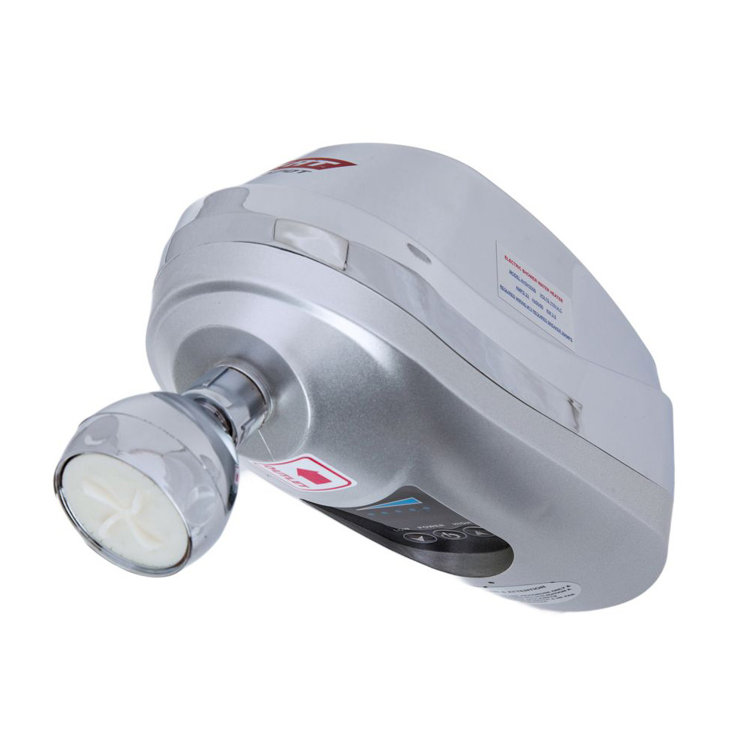
Credit: www.wayfair.com
Frequently Asked Questions
What Is A Point Of Use Water Heater?
A point of use water heater is a compact device installed near a fixture. It provides hot water instantly and efficiently. Ideal for showers, they save energy by heating water on demand. Their small size makes them perfect for limited spaces.
Can A Point Of Use Heater Handle Shower Demands?
Yes, point of use water heaters can handle shower demands. They provide consistent hot water flow, ensuring comfort. However, selecting the correct size and capacity is essential. Larger units are ideal for multiple users or longer showers.
Is Installation Of A Point Of Use Heater Easy?
Installation is generally straightforward, requiring basic plumbing and electrical skills. They fit in tight spaces, making them versatile. Professional installation may be advisable to ensure safety and optimal performance. It ensures compliance with local building codes.
How Energy-efficient Are Point Of Use Water Heaters?
Point of use water heaters are highly energy-efficient. They heat water on demand, reducing standby energy losses. This efficiency can lower energy bills significantly. Choose a model with a high Energy Factor rating for best results.
Conclusion
Point of use water heaters can work for showers. They save space and heat water quickly. Consider your shower’s water flow rate and heater capacity. Ensure the heater can meet your needs. Check energy efficiency ratings too. They can lower energy bills.
Installation might require professional help. Safety first! Research different models before buying. Read reviews and compare features. A well-chosen heater enhances your shower experience. Enjoy warm showers without the wait. Choose wisely for comfort and efficiency.
